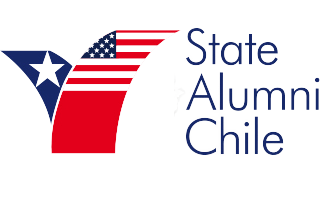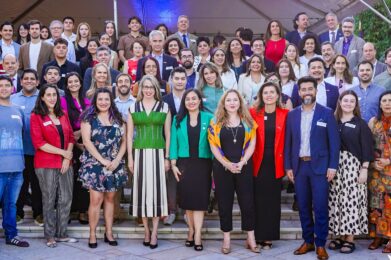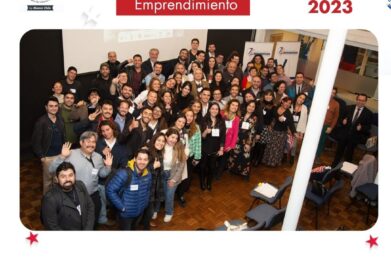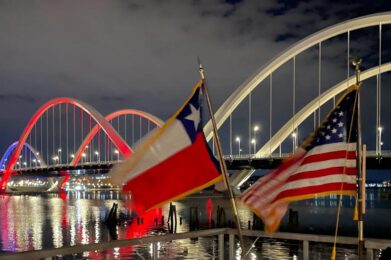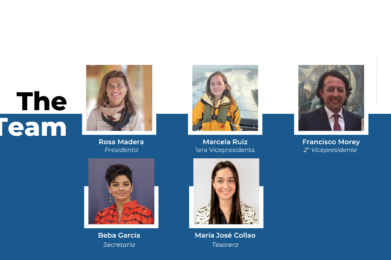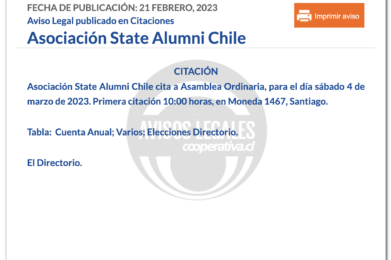Chile, in recent years, has managed to position itself as an undisputed leader in marine protection, with achievements as relevant as having about 43% of its exclusive economic zone (EEZ) with some degree of protection, but also assuming ambitious commitments such as sustainably managing 100% of its EEZ, or promoting the first marine protected area in the high seas (Cordillera de Nazca).
Of this growing leadership and the challenges involved in it, three prominent alumni of the Fulbright Chile program took part in this debate, starring in a discussion on the occasion of World Oceans Day to talk about what our country has achieved in terms of management and conservation of the marine ecosystems, but also to break down the pending challenges in public policy, science, risk and education.
Felipe Paredes (Fulbright 2005), marine biologist expert in public policy, summarized all the achievements that have led Chile to become a leader in conservation, and, also indicating that the challenge for the next ten years is to protect the north, central and southern Chile continental marine, where the population live and where the greatest risks to biodiversity are found. Fernanda Oyarzún (Fulbright 2002), scientist, artist and educator, stated that the most important challenge for scientists is to insert science into culture, since “art is a great learning tool to communicate and understand science and, as she stated, creativity allows us to perceive and understand reality”. Patricio Winckler (Fulbright 2010), a civil engineer specialized in coastal engineering, gave an exhaustive presentation on the different legal and public policy tools that exist today and are under discussion to protect the coastline, emphasizing the concept of vulnerability. "Chile has more than 18,000 risk elements that must be considered in order to generate solutions and adaptations to the different threats," he said. And he remarked that "Chilean coasts are unique in the world, therefore models applied by other countries cannot be just followed or copied, but they must be locally generated and that is the great challenge for Chilean scientists and public policies."
 As it will be recalled, this year 2021 marks the 75th anniversary of the Fulbright program worldwide, the flagship program of educational and cultural cooperation in the United States, with exchanges from more than 100 countries, and of which Chile is one of the oldest partners.
As it will be recalled, this year 2021 marks the 75th anniversary of the Fulbright program worldwide, the flagship program of educational and cultural cooperation in the United States, with exchanges from more than 100 countries, and of which Chile is one of the oldest partners.
Antonio Campaña, executive director of Fulbright Chile Commission, expressed that this activity is part of the celebration of the 75 years of existence of the academic exchange program, which in Chile has been very successful and has given the possibility of studying in the United States to a large number of high-level professionals. For her part, Paula Wickle, Cultural Attaché of the United States Embassy in Chile, stressed the importance of the exchange program for the North American government, highlighting that for the government of President Joe Biden “the conservation and protection of the ocean, the protection of inhabitants, ecosystems and climate change are all priority issues and this activity is a great opportunity to broaden the debate, given the expertise of the panelists, all former Fulbright program recipients.”
Francisco Morey, President of State Alumni Chile, journalist specialized in scientific issues and moderator of the activity, described this seminar as an opportunity to broaden the debate around the ocean with new, emerging voices, transversely characterized by the “exploration capacity, with great disciplinary solidness, but with a special focus on the intersectional themes and, above all, the audacity to move forward; qualities that the panelists who accompany us fulfill.”
The discussion was jointly organized by Fulbright Chile Commission and the Chilean State Alumni Association, with the invaluable support of the United States Embassy and the Chilean North American Institute.
If you could not participate or want to review this pleasant debate, you can access the recording on our YouTube channel.
